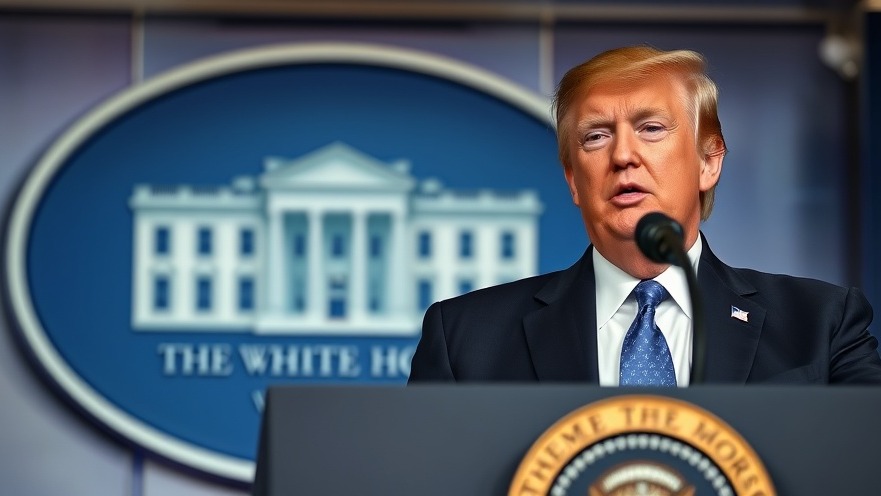
Unpacking Trump's Federal Crime Initiative in D.C.
In a bold move that has stirred both support and controversy, President Trump recently held a news conference addressing crime in Washington, D.C., where he announced an increase in federal law enforcement presence in the city. This decision comes on the heels of crime rates that, despite showing a decline, have been characterized by Trump as 'one of the most dangerous cities anywhere in the world.' His remarks are particularly pointed as D.C. has seen a significant drop in violent crimes compared to last year, with authorities reporting a 28% decrease in robberies and a 26% decrease in overall violent crime. However, Trump’s narrative suggests a need for immediate action and possibly a federal takeover to further ensure safety.
The Context Behind Trump's Declaration
This latest initiative was spurred by a series of incidents, including an alleged assault on a former staffer of the Department of Government Efficiency. In response, Trump has deployed approximately 450 federal officers across the D.C. area. His plans entail relocating homeless individuals while vowing to combat crime with a zero-tolerance approach. Critics argue that his interpretation of D.C.'s crime situation does not align with the current data. Mayor Muriel Bowser publicly challenged Trump's assessment, asserting that crime is not spiking and detailing cooperative efforts with federal law enforcement.
Analyzing Local Reactions and Concerns
The administration’s narrative has provoked diverse opinions within the D.C. community. Some residents support increased federal involvement, believing it may deter violent crime. However, others view it as an overreach that undermines local governance. Bowser emphasized her familiarity with the crime situation and sought to reassure residents that local law enforcement is effectively managing the issue. This conflicting dialogue emphasizes a critical point: the relationship between federal and local law enforcement is often symbiotic yet can also become contentious.
Future Implications for D.C. Governance
Trump's announcement raises future questions about the balance of power between local jurisdictions and federal authority. Traditionally, the governance of D.C. has allowed for local autonomy, but recent developments suggest that the federal government's role could expand. Observers will undoubtedly scrutinize not just the public safety outcomes but also how such power dynamics will shift governance and law enforcement practices in the nation’s capital over the coming months. The ramifications could set precedents for other urban areas grappling with crime and safety issues.
Community Safety vs. Federal Overreach
This episode also reflects a broader national debate on public safety strategies. As violent crime rates fluctuate across major U.S. cities, diverse approaches emerge, ranging from community policing efforts to federal interventions. Advocates for community safety underscore the importance of addressing root causes of crime, such as poverty and lack of access to services, rather than relying solely on increased policing. In contrast, others argue that immediate, more stringent enforcement is necessary to protect vulnerable populations.
Final Thoughts on Government Responsibility and Civic Engagement
The effectiveness of Trump's declaration will ultimately hinge not only on public safety statistics but also on community engagement. As local residents navigate their feelings about increased federal presence—balancing safety with notions of autonomy—it becomes clear that civic discourse will play a crucial role in shaping both perceptions and policies. Residents are encouraged to stay informed and engaged, as decisions about crime policy directly affect their lives.
As we witness the unfolding developments in D.C. and the discourse surrounding them, it's essential for all citizens to understand the implications of federal actions on local governance. Keep a close eye on ongoing updates related to this pressing issue, and ensure your voice is heard in these critical conversations.
 Add Element
Add Element  Add Row
Add Row 



Write A Comment